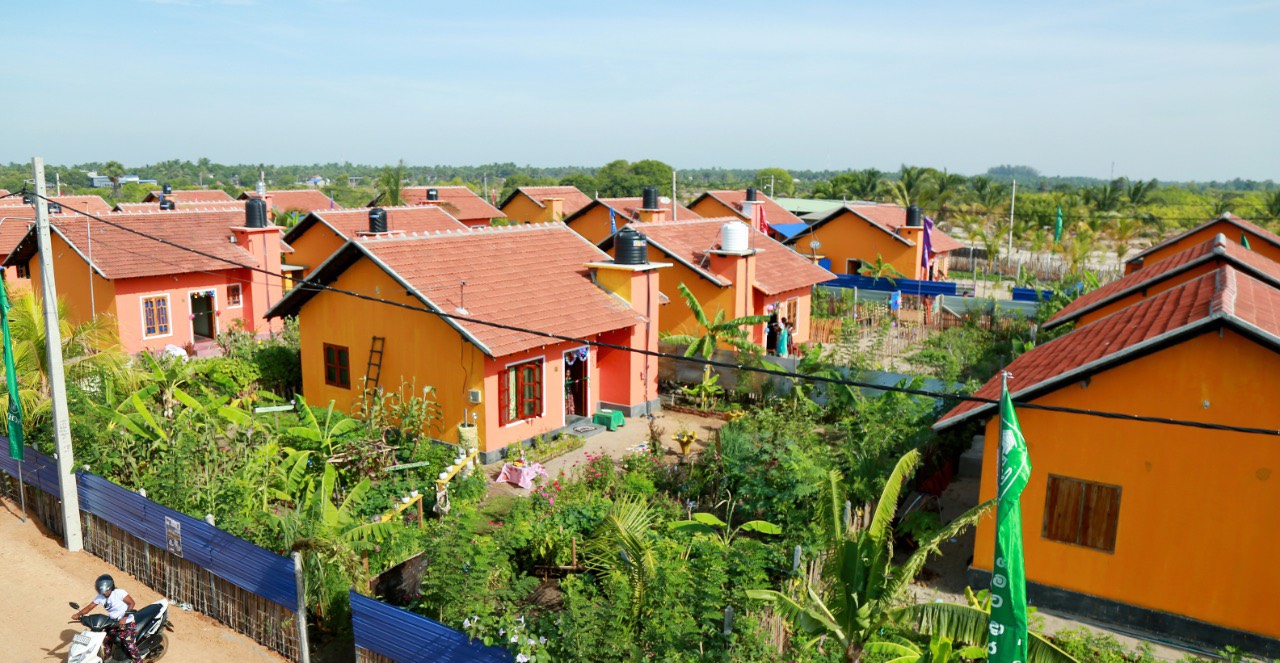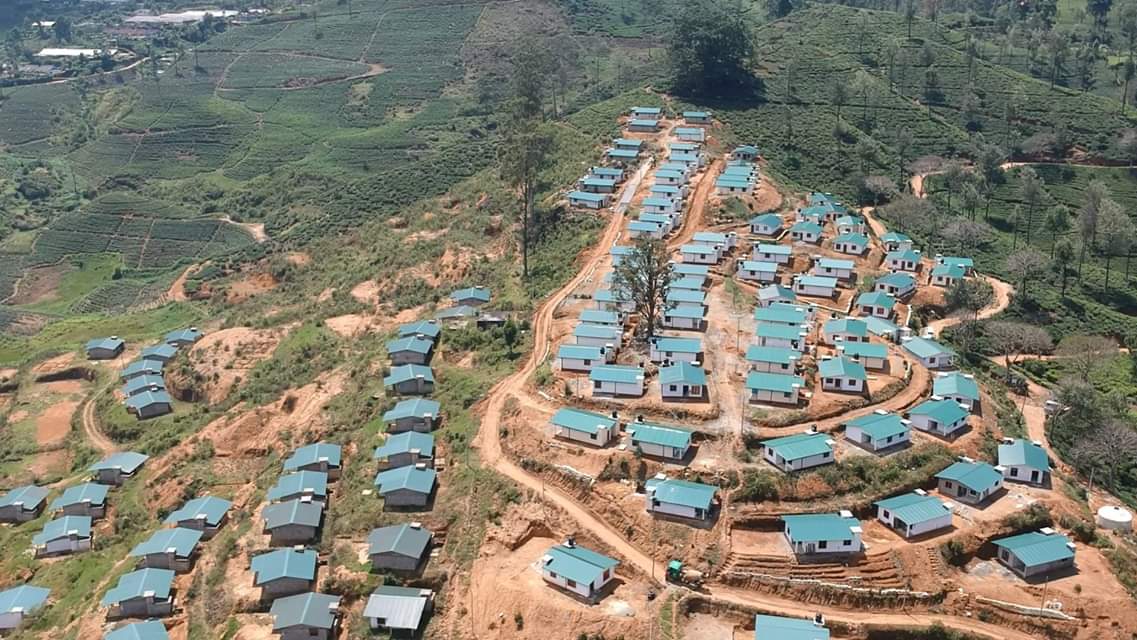
The Ceylon Workers Congress (CWC) has been accused of corruption and favouring trade union members when selecting beneficiaries for houses constructed through an Indian grant.
A report in the Daily Mirror quoted several sources as telling the newspaper that they faced interference and “tremendous pressure” when allocating beneficiaries for the homes.
“Those who have left the estates, those who already have houses and reside in the estates, but work for other private entities are not eligible for these houses,” said one source. “But we have come under tremendous pressure from the CWC to give houses to individuals falling into these categories; which is not the requirement of the Indian Government. What we were told by the Indian High Commission offices is to select the most suitable beneficiaries, but not to do it based on affiliation to any trade union.”
Ceylon National Estate Workers Union Suresh Vadivel MP admitted that he had received complaints regarding the selection of beneficiaries but claimed that “he was able to sort it out with the Plantation Managers,” according to the Daily Mirror.
Alongside favouring those affiliated with trade unions, the newspaper also claimed that money given for the housing project has been “misappropriated by a higher official at the Elkaduwa Estate, Matale”.
After reported inquiries made by the Indian High Commission, who requested to see the bank statements of the Estate Worker Housing Cooperative Societies (EWHCS) of the Indian Housing Project in Elkaduwa Estate, the Senior Superintendent was reportedly suspended and then transferred to another estate.
“In future, I assure that the rules and regulations as per the tri-party agreement will be enforced,” the management reportedly said in a responding letter.
The Indian Housing Project is reportedly New Delhi's flagship grant project on the island. The current scandal is around the fourth phase of the project, which was announced by Prime Minister Narendra Modi in 2017, where he pledged an additional 10,000 houses for the estate workers.

We need your support
Sri Lanka is one of the most dangerous places in the world to be a journalist. Tamil journalists are particularly at threat, with at least 41 media workers known to have been killed by the Sri Lankan state or its paramilitaries during and after the armed conflict.
Despite the risks, our team on the ground remain committed to providing detailed and accurate reporting of developments in the Tamil homeland, across the island and around the world, as well as providing expert analysis and insight from the Tamil point of view
We need your support in keeping our journalism going. Support our work today.
For more ways to donate visit https://donate.tamilguardian.com.

